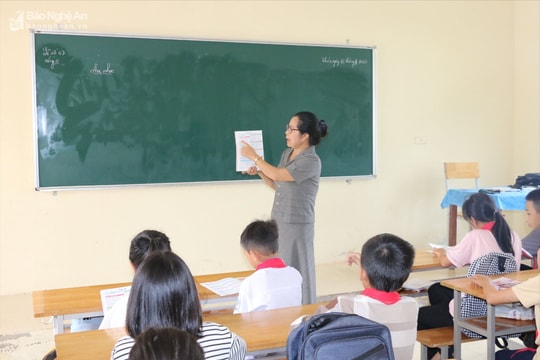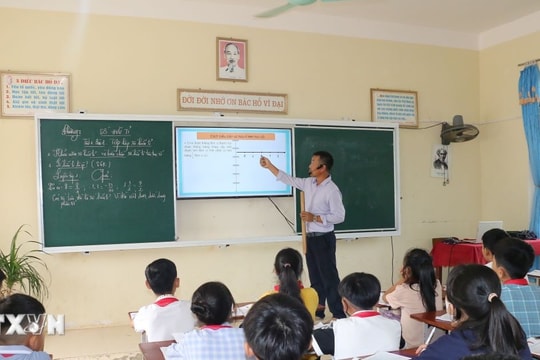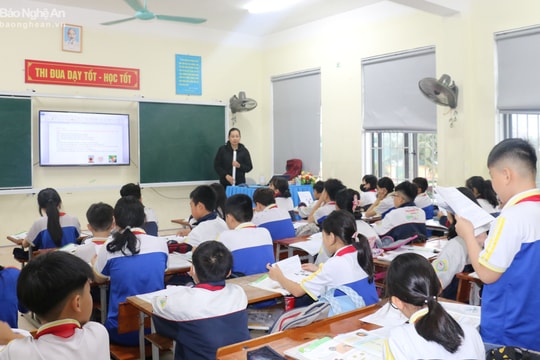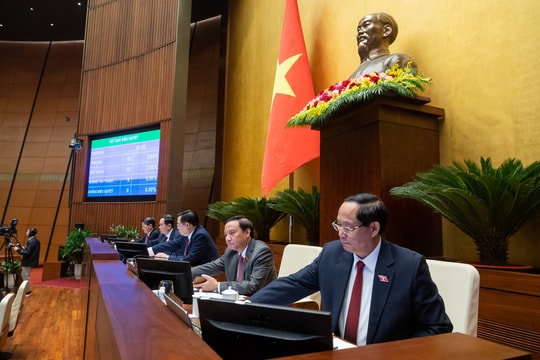Teachers' salaries will be paid according to job position.
The Ministry of Home Affairs is seeking opinions to complete the Law on Cadres and Civil Servants and the Law on Public Employees, which includes a provision that teachers will be paid according to their job position from January 1, 2020.
The Ministry of Home Affairs affirms that the construction of the job position competency framework is still qualitative. Therefore, most of the time, they rely on the regulations on standards of civil servant ranks and grades as the basis for determining the job position competency framework. This does not meet the requirements of the job position.
There are no criteria for assessing the workload to serve as a basis for scientifically calculating the number of people in each job position or to determine whether a person can hold multiple different tasks. This leads to difficulties in determining the civil service payroll and the number of employees according to job positions.
 |
| Teachers will be paid according to their job position. |
The Ministry of Home Affairs also said that the current mechanism for recruiting civil servants and public employees is not really linked to job positions, has not yet built a mechanism to select talented people who immediately meet the requirements of job positions, and has not linked the authority of the person directly employing civil servants with the authority to decide on recruitment.
In addition, the current recruitment regulations based on the examination or selection process also reveal some limitations, lacking the necessary "openness" to be able to recruit the right person for the job, especially in recruitment, attracting talent, creating a mechanism for connecting human resources in the public and private sectors, and a mechanism for competing for job positions to improve the quality of the staff, civil servants and public employees.
Regulations on attracting talent mainly only prioritize input recruitment, have not created a mechanism and an independent, competitive and creative working environment for talented people to have the conditions to promote their talents and strengths in their work, and have not promoted decentralization and delegation of authority to local and ministerial leaders in the work of attracting and using talented people in accordance with the specific activities of each industry, field and locality.
Therefore, it is expected to amend the provisions in Article 6 on policies for talented people in the direction that the Government prescribes the framework of mechanisms and policies for talented people in each sector and field and decentralizes to ministries, branches and localities based on the specific conditions of ministries, branches and localities to prescribe in detail policies to attract, use and treat talented people.
In addition, the provisions of Article 34, Clause 1 on the classification of civil servants will be amended. Accordingly, the proposed Law on Civil Servants will not limit the number of civil servant ranks from high to low to only 4 types (A, B, C, D) as before, but will assign the Government to specifically regulate the ranks of specialized civil servant ranks from high to low to create a favorable basis for building a system of job positions and paying salaries according to job positions.








